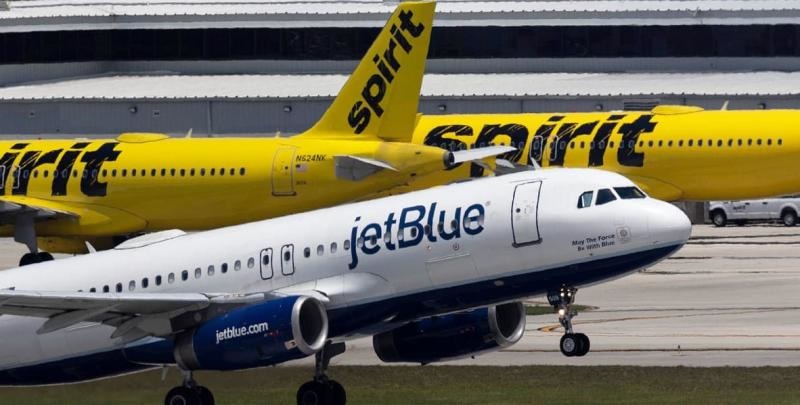


The U.S. Justice Department (DoJ) is going to file to block JetBlue’s pending $3.8 billion takeover of Spirit Airlines, with an arguement that the deal would eliminate competion from a critical low-cost airline and eventually increase prices in an already heavily-consolidated airtravel industry.
We all witnessed a lot of efforts by Jetblue to reach near the deal, which also included a revised proposal that offered a prepayment of $1.50 per share as cash dividend to Spirit shareholders if they vote against the competing bid from Frontier Airlines on June 10th.
The upcoming lawsuit can be seen as the latest anti-monopoly drive by the U.S. Government led by Biden administration, which has also shown some kind of interest in regulating various aspects air travel.
Attorney General Merrick Garland said during a press conference announcing the lawsuit,
"We allege that if allowed to proceed, this merger will limit choices and drive up ticket prices for passengers across the country," "By acquiring Spirit, JetBlue will eliminate the largest ultra-low-cost carrier in the United States."
JetBlue insists merging with Spirit will have little effect on fares, and will actually position the airline to better compete with larger carriers in the U.S.
A statement on the JetBlue's website says,
"A combined JetBlue-Spirit will bring together the best of both airlines to create a customer-centric, low-fare alternative to the dominant 'Big Four' airlines."
JetBlue has previously made clear that they intend to push regulators to approve their bid and reaffirmed that position just hours before the announcement out of Washington.
The lawsuit, which has been looming over the pending merger for months, could delay the deal by well over a year. The companies have until early next year to close the deal, which is aimed at creating the nation’s fifth-largest airline in an industry dominated by Delta, American, Southwest and United.
JetBlue is also waiting on the result of an antitrust trial about its Northeast Alliance with American Airlines. A decision in the case, which was heard late last year in Boston, is expected imminently.
Related Story....
The DoJ suit appears at a time when airline industry is passing through issues of different multitude, may it be the FAA NOTAM network outage, or increasingly passenger friendly rules by Federal government , also including the December debacle in which Southwest Airlines canceled more than 16,000 flights during the Christmas holidays. That particular failure incident helped stoke anger from consumers and regulators, amid complaints that decades of mergers have left passengers at the mercy of a monolithic airline industry.
Federal antitrust regulators have taken a harder line against a range of powerful businesses under President Joe Biden, including a recent DOJ lawsuit aimed at breaking up Google’s advertising business and the Federal Trade Commission’s unsuccessful attempt to stop Facebook’s parent from buying a fitness app.
